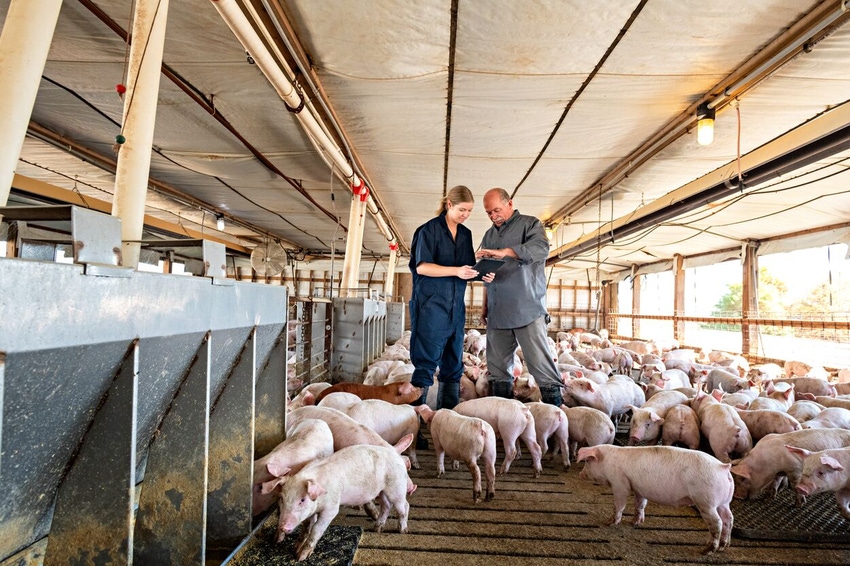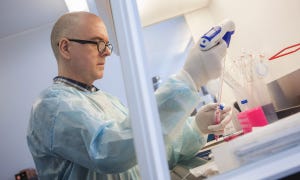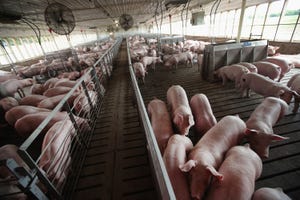The line of pork succession
An upcoming generational shift in pig production.
September 27, 2023

By Isabella Rivera, SwineTech
The pork industry is a part of agriculture fortunate enough to have its current leaders be the same people who built the modern industry over the last several decades. However, as time goes on and the industry continues to grow, pork will undeniably have a change in leadership from its modern founders to a younger generation. But what will that change look like, and what concerns might arise from the necessity of passing the baton?
Pork has long been a family business, and part of the upcoming generational shift in its leaders will occur within families as a result. That said, a general rule of thumb for businesses is that a line of succession starts to taper off around the third generation in the family to inherit the business. Generally, agriculture has been an outlier to that rule, but its situation is starting to change.
Rather than being a business that provides a hands-on lifestyle, where people get up early to tend to animals and schedule their days around the chores needed to run a farm, farm owners are now doing more with management and the traditional practices of general business owners in order to manage the growing industry.
Moreover, some producers simply don’t have a member of their family that is prepared to take on the role of leading a farm and/or company. That leads to questions of how to sell their business while honoring the values they have imbued in it, and altogether, the process of succession within pork is looking very different than it has in the past.
Regardless, agriculture in general is in an interesting position—according to research from Iowa State University, many farms have the unique opportunity to gather insight from the five different generations they employ, from the Traditionalists (74+ years old) to Generation Z (8-25 years old).
For example, a seasoned farm owner visiting a farm where he supervises more activities than he deals with personally might be able to provide husbandry tips to a high schooler working a part-time job, and that high schooler might be able to troubleshoot internet problems on the facility better than other workers who didn’t grow up with as much screen time. The diversity in perspective from those of different ages all working around one facility can provide unique advantages, and we shouldn’t shy away from that despite the challenges inherent to large-scale transition in any industry.
As far as notable figures in the industry who have already made this switch or are in the process of doing so, there are plenty of examples of younger generations working to preserve their family’s legacy—and of older generations expanding their leadership to other disciplines. For instance, Jim Pillen of Pillen Family Farms is currently serving as the governor of Nebraska, and his children have taken over the family business in his stead.
Joseph Dykhuis, president of Dykhuis Farms, Inc., has followed in his father’s and grandfather’s legacy of trusting research and the genetics around the PIC model to create pigs raised for high-quality meat rather than show.
Phil Hord has worked extensively in Hord Family Farms’ grow-to-finish facilities, human resources department and nutrition research, and he’s also continuing his family’s tradition of hard work by attending professional development programs available for younger members of the industry such as the Pork Leadership Institute.
Younger generation potential, needs
Pork clearly, then, already has an excellent legacy and younger generations that are prepared to uphold it, but what might those changes brought by a more contemporary approach look like?
Alongside the differences associated with their role in lines of succession, a younger generation has the potential to merge the technology they grew up learning with the traditional management practices of a farm. For instance, the U.S. Bureau of Labor Statistics has highlighted increasing growth in the field of data science in the U.S. economy. Moreover, while using AI technologies on farms to collect various types of data about animals is becoming increasingly popular, innovators in the industry are also creating platforms that can organize data for analysis. Combined with an exponential increase in automation in farms over the last several decades, the need for adaptable, tech-savvy workers who can manage mechanical operations to increase a farm’s efficiency is only growing. New generations can fill that niche, but what might employers want to consider when onboarding younger workers?
Research is showing that, more than simply focusing on pay, Generations X and Y are increasingly concerned with scheduling flexibility, effective collaboration and varied tasks in their work environment. The generations slowly taking over farming understand the importance of family within an operation, and they are prioritizing work that allows them to spend time building their own.
This said, younger workers having different priorities and skills than those from generations past doesn’t mean that they’re standing on their own. Traditions established by older members of the pork community, such as innovation through collaboration, even with competitors in the industry, and the necessity of choosing the right hands to run their farms. Even with all the tech in the world, nothing can fully replace the skill of a farmhand who knows the animals under their care and the best husbandry practices to keep pigs happy and healthy within a facility.
By combining knowledge gained from decades of work with ever-evolving research and technology, the succession of pork from one generation to the next will continue to broaden the industry’s horizons.
You May Also Like


.png?width=300&auto=webp&quality=80&disable=upscale)
